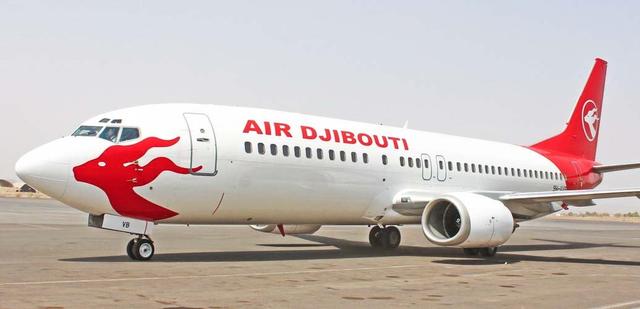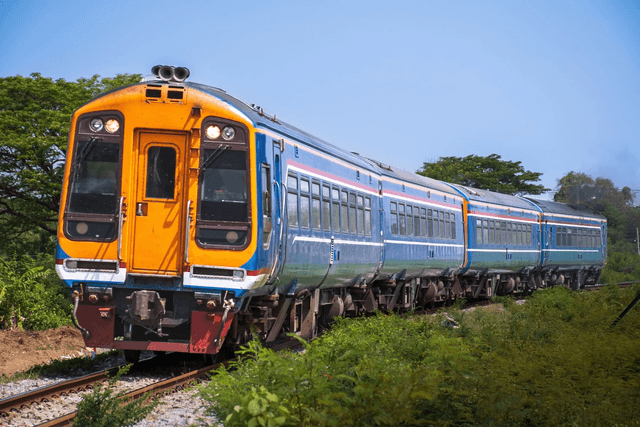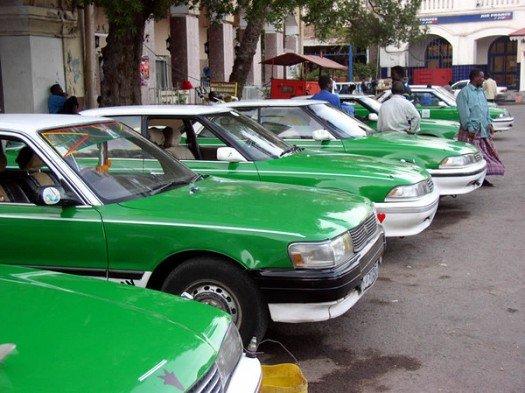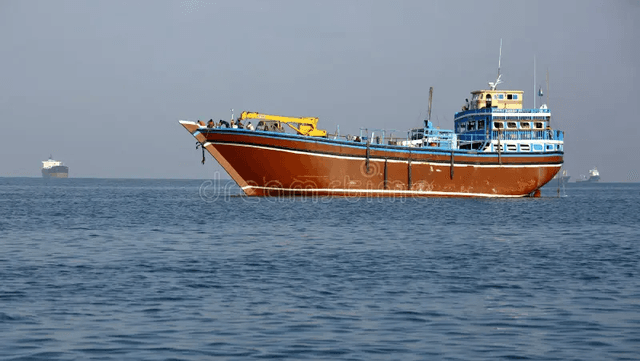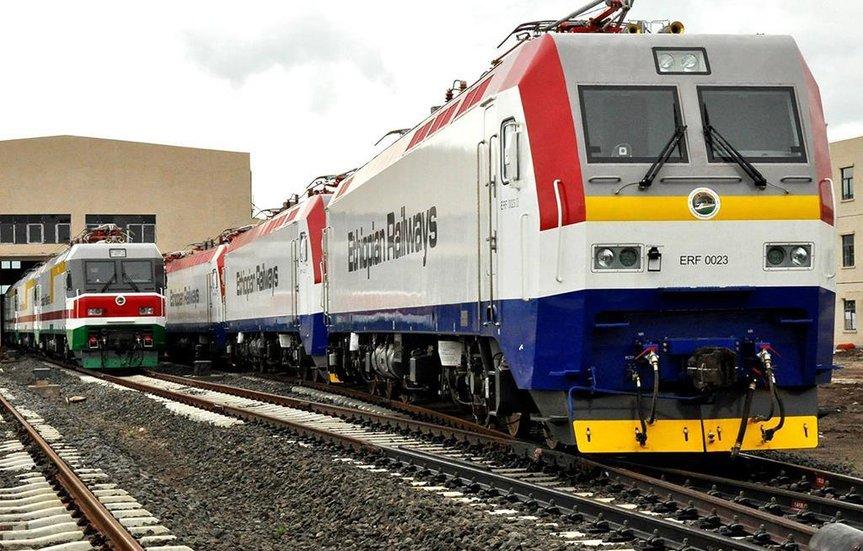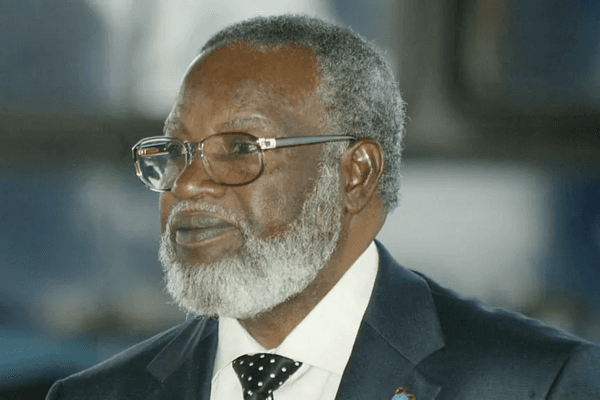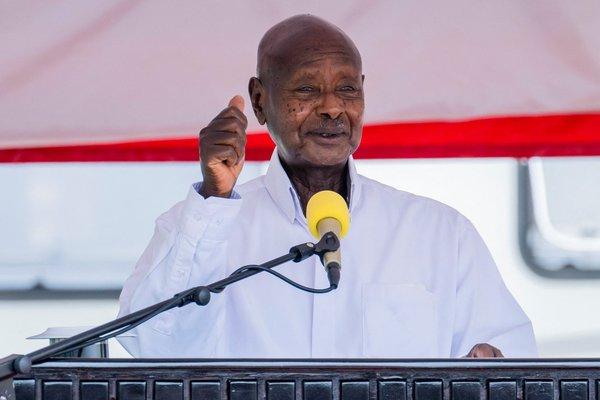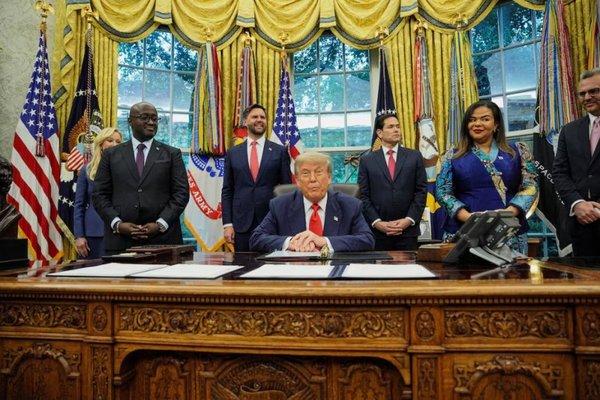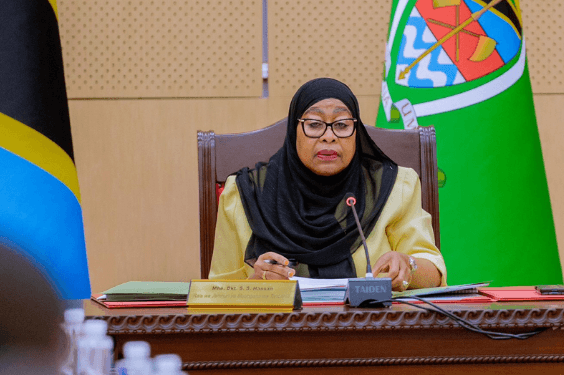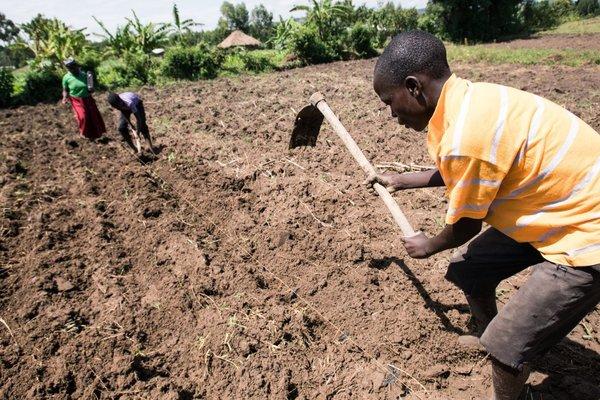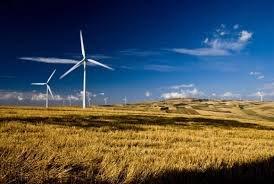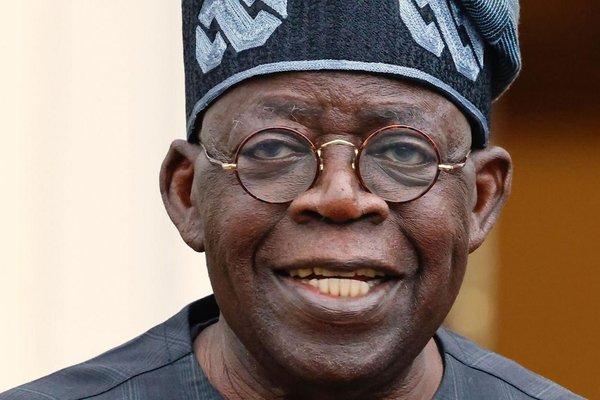Djibouti
Founded in 1888 by the French, it became the capital in 1892, growing into a cosmopolitan port city blending Afar, Somali, Yemeni, and French influences — nicknamed the “Pearl of the Gulf of Tadjoura” Major architecture: Moorish-influenced Plaza of June 27, modern towers like Mezz and SALAAM, and historic souks in the Old City. Rapid urbanization: over three-quarters of Djiboutians live in urban areas, most residing in the capital region.

Horn of Africa

About 23,200 km²,

UTC Offset: +3 hours

Approximately 1.07 million (as of 2024 census)

French, Arabic, somali

Islam (Sunni branch, nearly 94%)

Djiboutian Franc

President: Ismaïl Omar Guelleh
Brief
Djibouti is a small yet strategically significant country located in the Horn of Africa, where the Red Sea meets the Gulf of Aden. Covering just over 23,000 square kilometers, it is bordered by Eritrea, Ethiopia, and Somalia, with a population of approximately 1.1 million people, the majority of whom live in the capital, Djibouti City.
Once a French colony known as French Somaliland, Djibouti gained independence in 1977. It maintains strong ties with France and hosts multiple foreign military bases, including those of the United States, China, and Japan, due to its proximity to vital international shipping routes.
The country is a melting pot of Somali, Afar, Arab, and French influences, with Islam as the dominant religion. Its official languages are French and Arabic, though Somali and Afar are also widely spoken. The economy is primarily service-based, centered on its deep-water port, which is crucial for landlocked Ethiopia's trade.
Despite harsh arid conditions, Djibouti boasts extraordinary geological features—salt lakes, dormant volcanoes, and rugged coastlines—that are drawing growing interest in eco-tourism. Politically, it is ruled by President Ismaïl Omar Guelleh, in power since 1999.
Djibouti is a small but geopolitically powerful nation, balancing tradition and modernization at one of the world's most critical maritime crossroads
Cultural Life
Cultural milieu
Djibouti’s cultural identity is shaped by its strategic location at the intersection of Africa and the Middle East, blending African, Arab, and French influences. The country's two main ethnic groups, the Somali (notably the Issa clan) and the Afar, maintain rich oral traditions, clan-based social structures, and strong pastoralist roots. While French and Arabic are official languages, Somali and Afar are widely spoken, reflecting the nation’s multilingual character.
Islam is the cornerstone of Djiboutian life, influencing social norms, dress, celebrations, and values. Family and community are central, with deep respect for elders and traditional hospitality. In daily life, men typically wear sarongs and tunics, while women don colorful diracs and adorn themselves with henna and jewelry during festivities.
Music and dance are vibrant cultural expressions, with poetic Somali songs and rhythmic Afar dances playing important roles in celebrations. Cuisine is equally diverse, incorporating Somali, Arab, Ethiopian, and French elements—common dishes include spicy stews, rice, flatbreads, and sweet tea.
Urban areas reflect modern, global influences, yet tradition remains strong, especially through storytelling, proverbs, and poetry. Djibouti's cultural milieu is a harmonious fusion of heritage and modernity, deeply rooted in its geography and history.
Daily Life and social customs
Djibouti’s cultural identity is shaped by its strategic location at the intersection of Africa and the Middle East, blending African, Arab, and French influences. The country's two main ethnic groups, the Somali (notably the Issa clan) and the Afar, maintain rich oral traditions, clan-based social structures, and strong pastoralist roots. While French and Arabic are official languages, Somali and Afar are widely spoken, reflecting the nation’s multilingual character.
Islam is the cornerstone of Djiboutian life, influencing social norms, dress, celebrations, and values. Family and community are central, with deep respect for elders and traditional hospitality. In daily life, men typically wear sarongs and tunics, while women don colorful diracs and adorn themselves with henna and jewelry during festivities.
Music and dance are vibrant cultural expressions, with poetic Somali songs and rhythmic Afar dances playing important roles in celebrations. Cuisine is equally diverse, incorporating Somali, Arab, Ethiopian, and French elements—common dishes include spicy stews, rice, flatbreads, and sweet tea.
Urban areas reflect modern, global influences, yet tradition remains strong, especially through storytelling, proverbs, and poetry. Djibouti's cultural milieu is a harmonious fusion of heritage and modernity, deeply rooted in its geography and history.
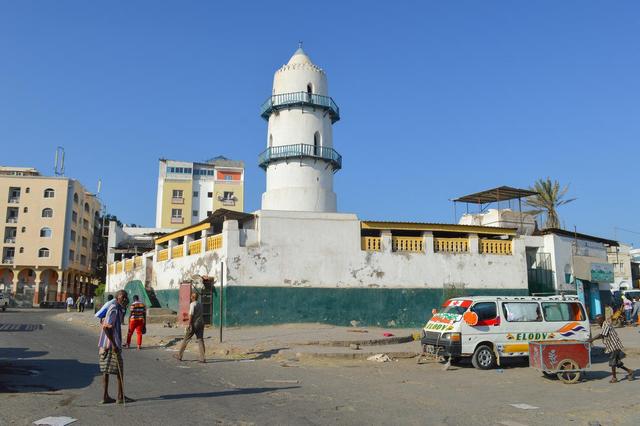

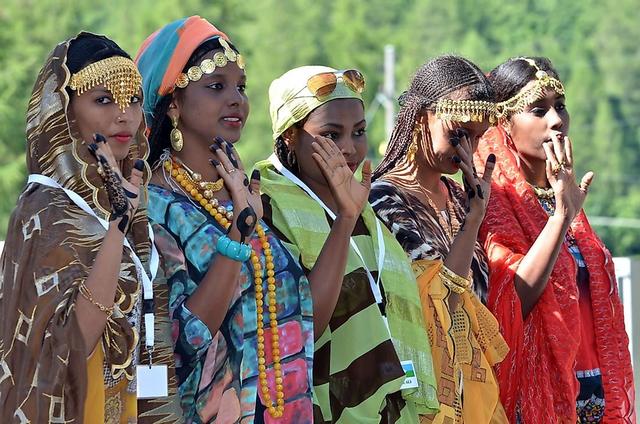
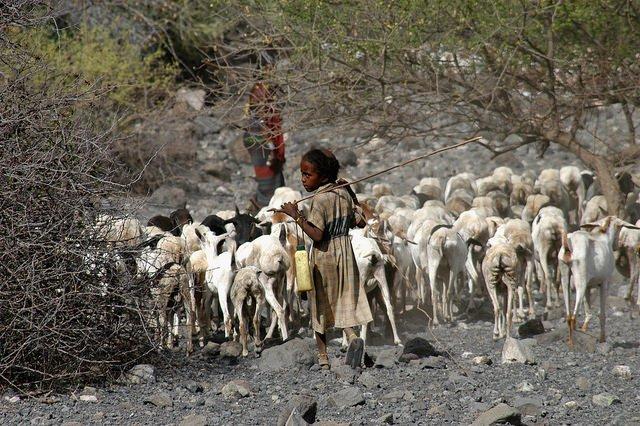
Cuisines
Djiboutian cuisine reflects a rich blend of African, Middle Eastern, and French influences, shaped by the country’s strategic location along the Red Sea. Staple dishes often include rice, pasta, or flatbreads served with spiced meats like lamb, goat, or chicken. Popular dishes include skudahkharis (a rice and meat pilaf), fah-fah (a spicy meat stew), and lahoh (a spongy flatbread similar to Ethiopian injera). Aromatic spices such as cardamom, cumin, and cinnamon are commonly used, while seafood is abundant due to the coastal location. Meals are often accompanied by sweet chai or strong Yemeni-style coffee, reflecting the region’s cultural ties to the Arabian Peninsula.
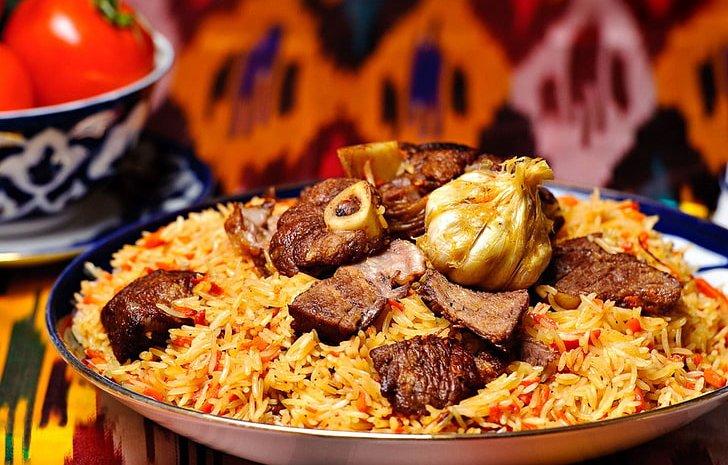
Djibouti cuisines
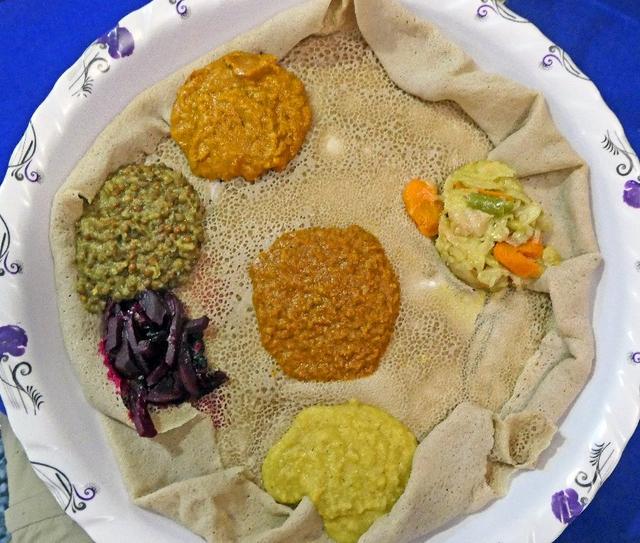
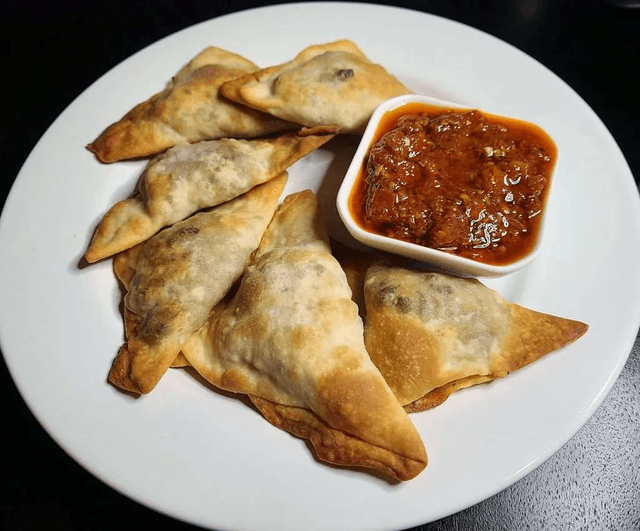


Music
Music in Djibouti is a vibrant expression of the country's diverse cultural heritage, blending traditional Somali rhythms with Arab, Afar, and French influences. Traditional instruments such as the oud (a pear-shaped string instrument), drums, and flutes accompany poetic songs that often convey social, historical, or romantic themes. Somali music, known for its melodic and lyrical richness, plays a central role, while Afar music features rhythmic clapping and call-and-response singing. Modern Djiboutian artists incorporate contemporary genres like reggae, hip-hop, and electronic beats, often singing in Somali, Afar, Arabic, or French. Music is an essential part of celebrations, storytelling, and daily life, serving as a bridge between generations and communities.
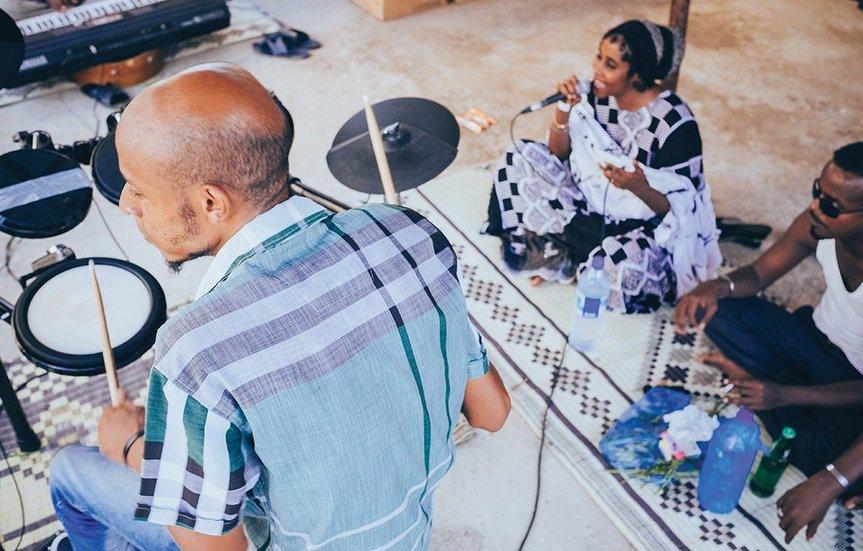
Arts
The arts in Djibouti are deeply rooted in oral traditions, storytelling, poetry, and crafts, reflecting the country's cultural mosaic of Somali, Afar, and Arab heritage. Poetry is highly esteemed and often performed aloud, blending music and rhythm to convey themes of love, history, and social issues. Visual arts are less formalized but evident in intricate textile designs, traditional jewelry, and handcrafted items such as wood carvings and pottery. Dance and theatrical performances are commonly featured during festivals and community gatherings, showcasing expressive movements and traditional attire. In recent years, contemporary artists have begun exploring painting, photography, and multimedia, often drawing inspiration from Djibouti's unique landscapes and multicultural identity
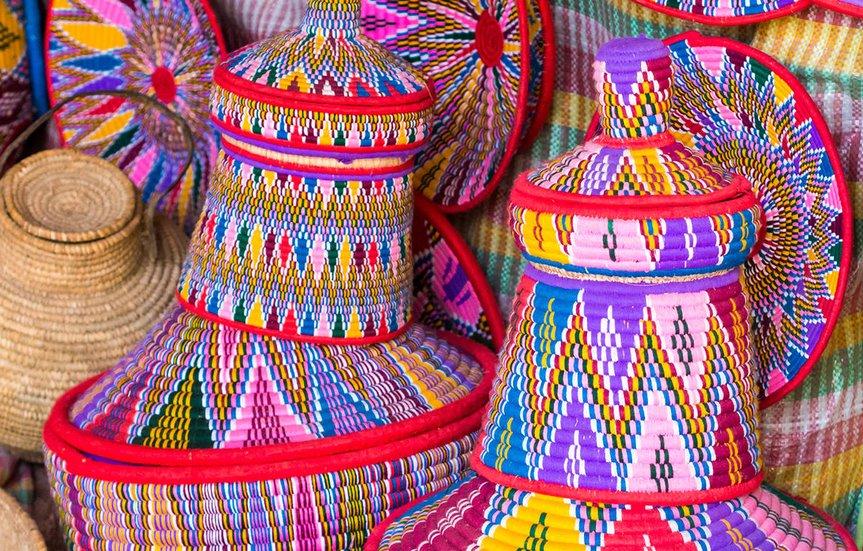
Art Gallery
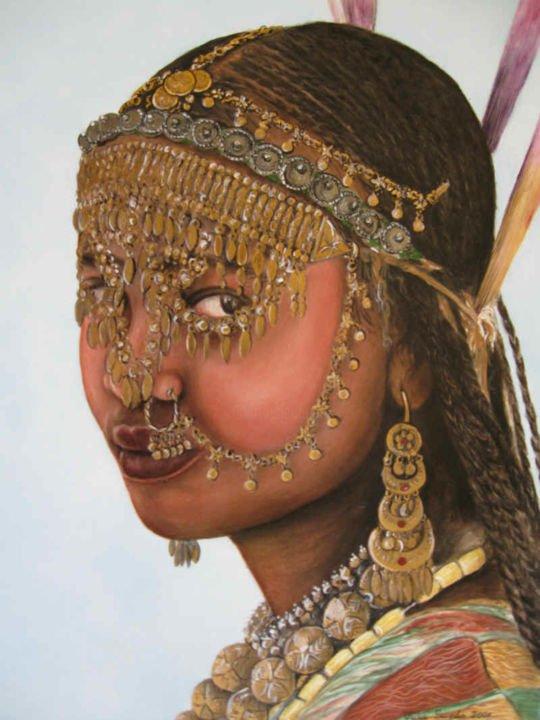
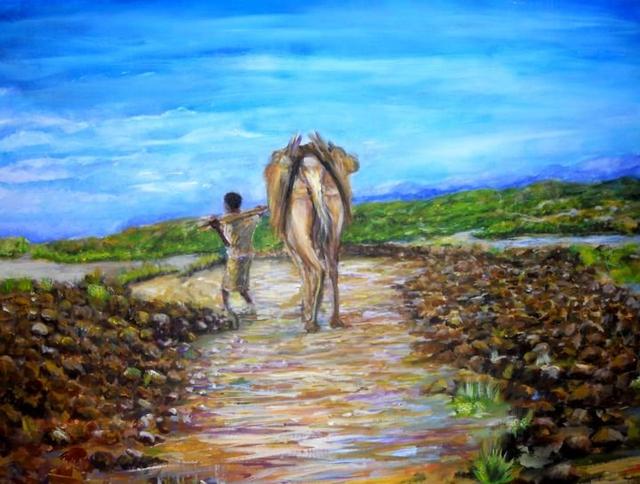
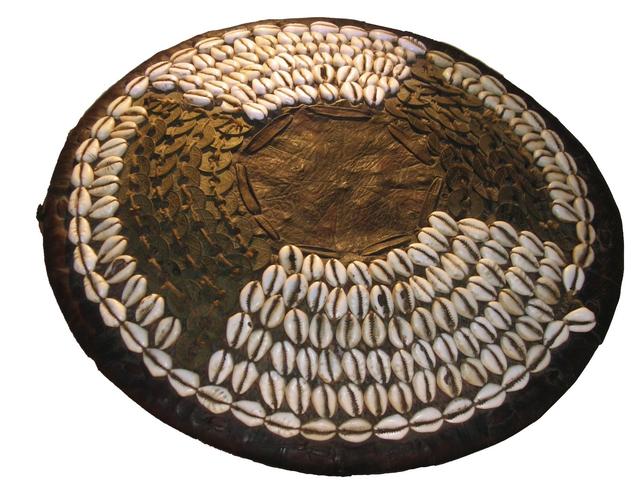
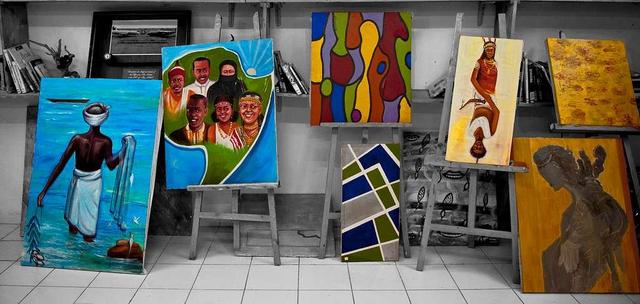
People
Ethnic Groups
Djibouti is ethnically diverse, with the two main groups being the Somali and the Afar. The Somali, who form the majority, are primarily from the Issa clan, a sub-group of the larger Somali ethnic group, and play a dominant role in the country’s politics and culture. The Afar, who inhabit the northern and western regions, have their own distinct language and traditions and are historically nomadic pastoralists. Smaller communities of Arabs, particularly of Yemeni descent, and other ethnic minorities such as Ethiopians and Europeans, mainly French, also reside in the country. This ethnic blend contributes to Djibouti’s rich cultural and linguistic heritage.

Ethnic groups
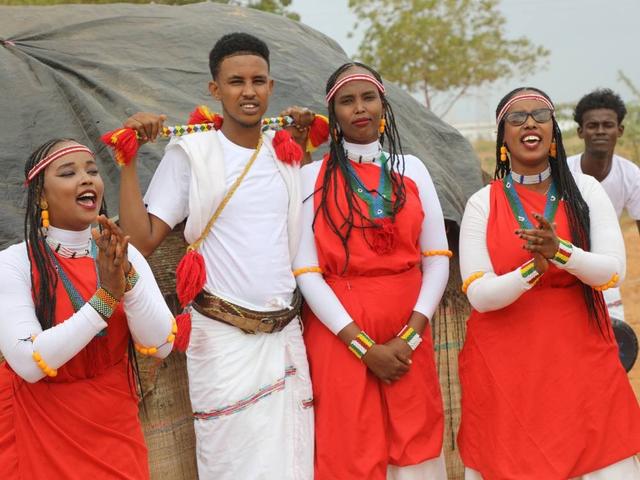
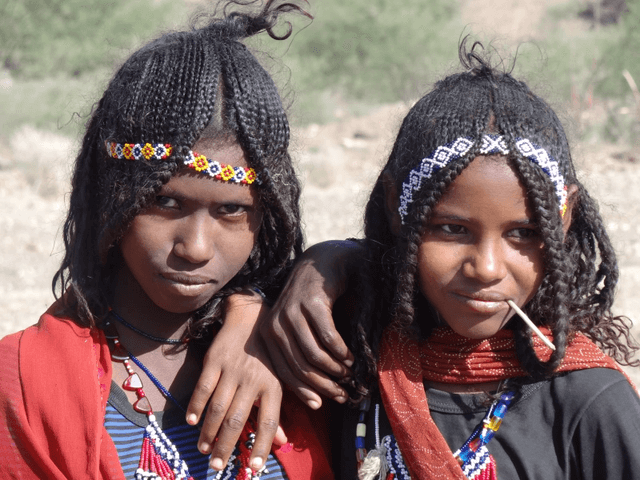
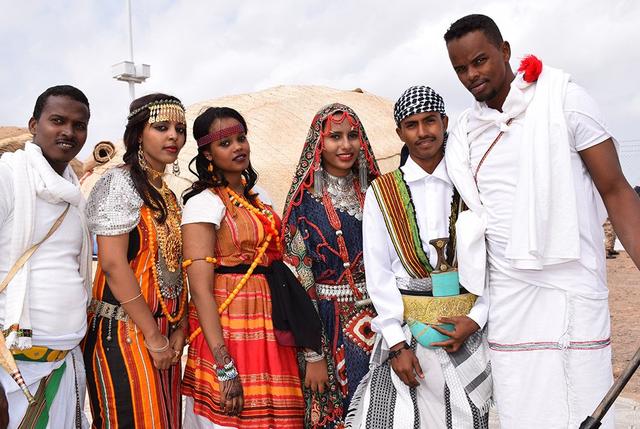
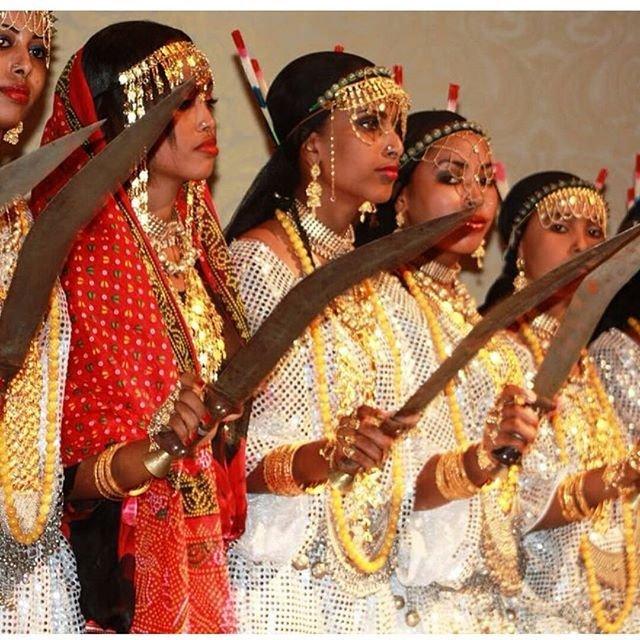
Religion
Islam is the predominant religion in Djibouti, with nearly the entire population adhering to Sunni Islam, specifically of the Shafi’i school. Islam plays a central role in daily life, influencing social customs, laws, and cultural practices. Mosques are found throughout the country, and religious observances such as Ramadan and Eid are widely celebrated. While Djibouti is a secular state by constitution and allows freedom of religion, other religious communities—primarily small groups of Christians, including Roman Catholics and Ethiopian Orthodox—exist, mainly among expatriates. Religious tolerance is generally practiced, but Islam remains deeply embedded in the national identity and social fabric.
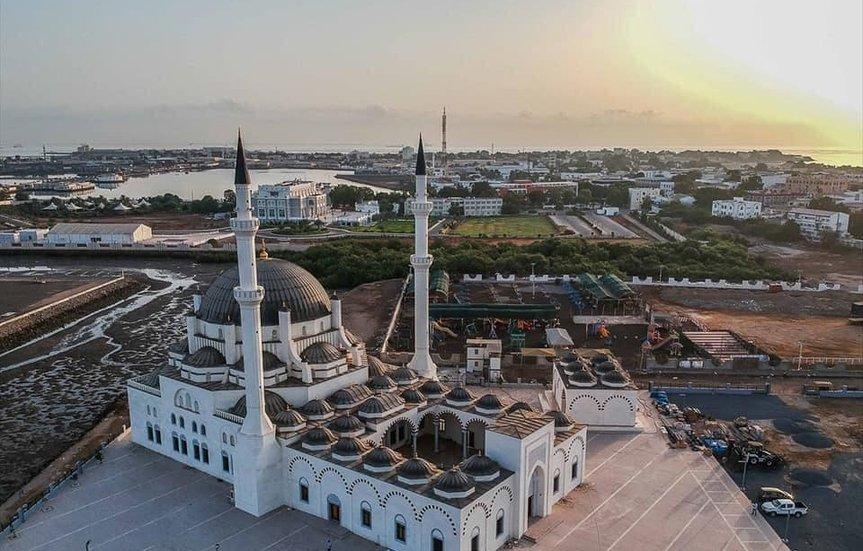
Settlement Patterns
Settlement patterns in Djibouti are shaped by its arid climate, geography, and nomadic traditions. The majority of the population is concentrated in urban areas, particularly in the capital, Djibouti City, which serves as the political, economic, and cultural hub. This coastal city houses over half of the country's population and offers access to employment, education, and services. Outside the capital, settlements are sparse and primarily found along transport routes or near water sources. Many Afar and Somali communities maintain semi-nomadic or pastoral lifestyles in the interior regions, moving with their herds in search of grazing land. Rural settlements are often small, with traditional dwellings and limited infrastructure.
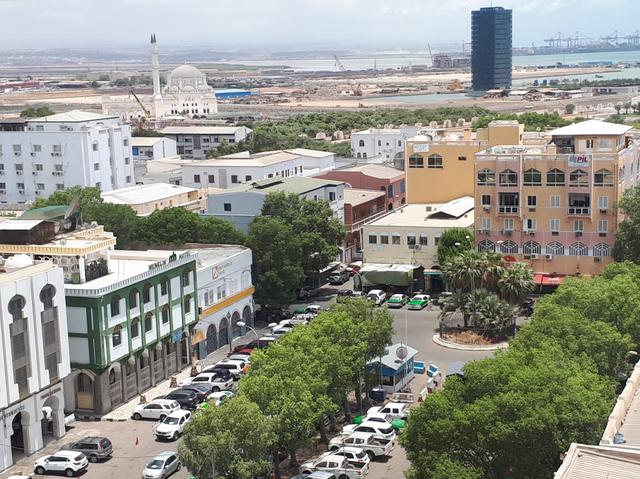
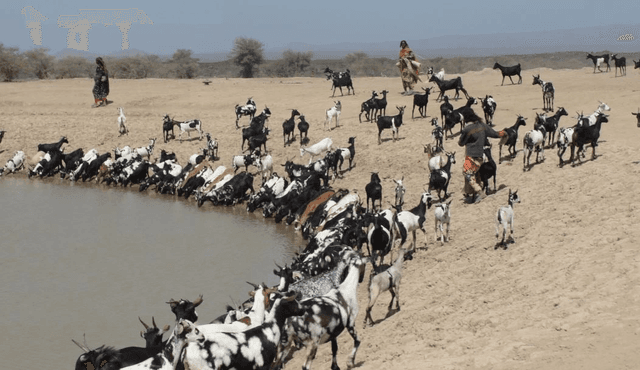
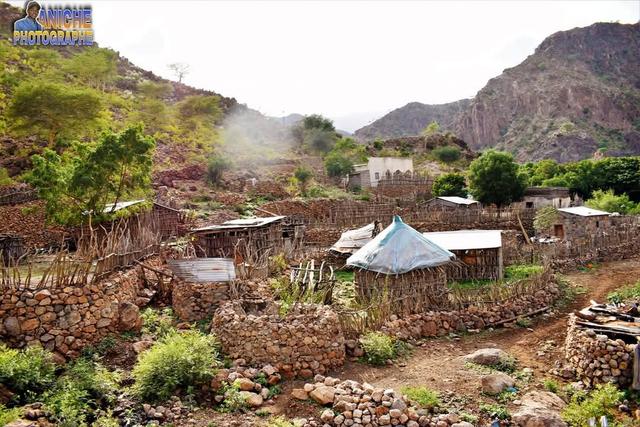
Demographic Trends
Djibouti’s demographic trends reveal a young and steadily growing population, with an estimated 1.18 million people in 2025 and a median age of around 25 years. The country experiences modest annual growth, driven by a high birth rate and positive net migration, particularly into urban areas. Over 78% of the population lives in cities, with Djibouti City alone housing more than half of the nation’s residents. The fertility rate has gradually declined to around 2.1–2.6 births per woman, while life expectancy hovers around 66 years. Although infant and child mortality rates remain relatively high, improvements in healthcare and urban development are shaping the demographic outlook. These trends point to increasing urbanization and a growing working-age population, offering both opportunities and challenges for future development.
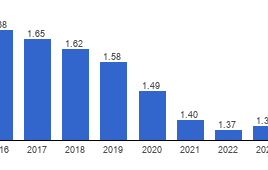
Touristic Cities
Djibouti city
Djibouti City, the capital of Djibouti, is a bustling port city located on the coast of the Gulf of Tadjoura. It serves as the country’s economic and administrative hub, hosting the main port, international airport, and government offices. Known for its strategic position near the Bab-el-Mandeb Strait, the city is a key gateway for international trade between the Red Sea and the Indian Ocean. Djibouti City is culturally diverse, with vibrant markets, a mix of modern and traditional architecture, and a lively atmosphere shaped by its Somali, Afar, Arab, and French influences.
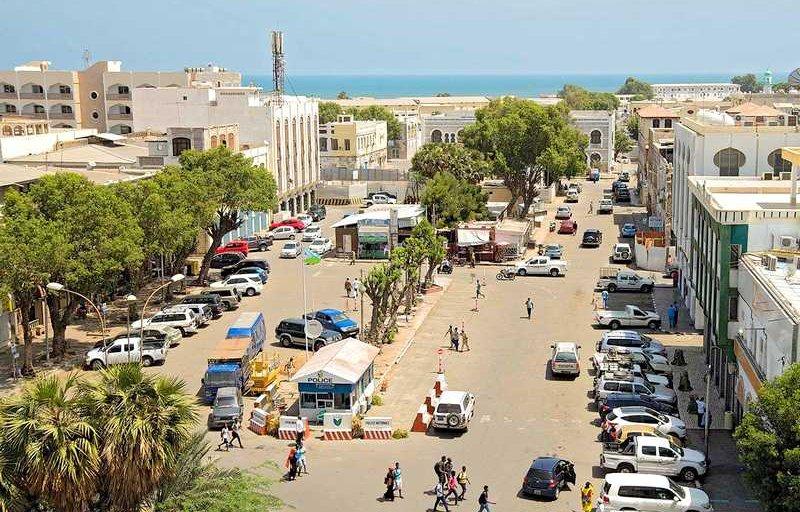
Djibouti’s main cities reflect its strategic location and diverse culture, with Djibouti City as the vibrant capital and largest urban center. Djibouti City is the economic and administrative hub, hosting the country’s main port, international airport, and most government institutions. Other important cities include Ali Sabieh, located near the southern border with Ethiopia, known for its trade and railway connections; Tadjourah, a historic port town on the Gulf of Tadjoura with rich cultural heritage; and Dikhil, an agricultural and trading center in the southwest. Smaller towns like Obock and Arta also play roles in regional commerce and administration. These cities vary in size and function but collectively support Djibouti’s economy, culture, and regional connectivity.
Photos
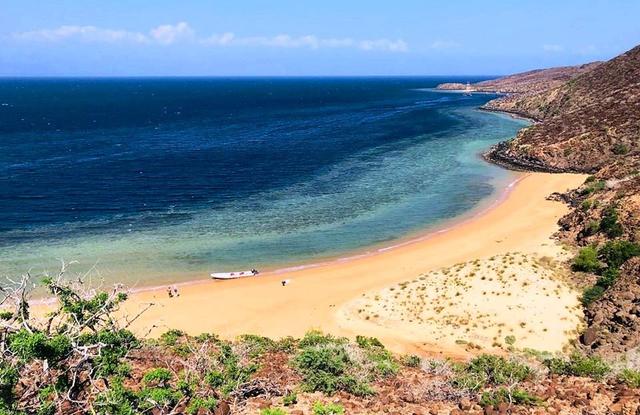
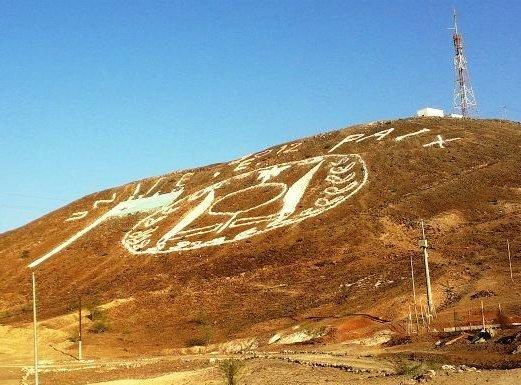
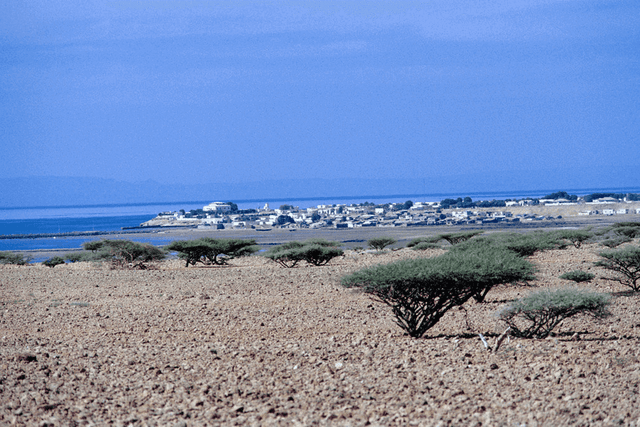
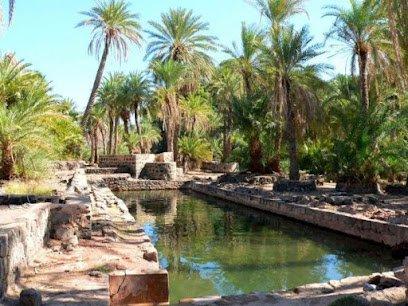
Accommodations
Guesthouses
Guesthouses in Djibouti offer a budget-friendly and culturally immersive accommodation option, especially for backpackers, NGO workers, and independent travelers. Found mainly in Djibouti City and towns like Tadjoura or Ali Sabieh, these guesthouses typically provide modest but comfortable rooms, shared or private bathrooms, and home-cooked meals. They are often family-run, offering personalized service and insights into local life. Some guesthouses also help arrange excursions to nearby natural attractions such as Lake Assal or the Day Forest.
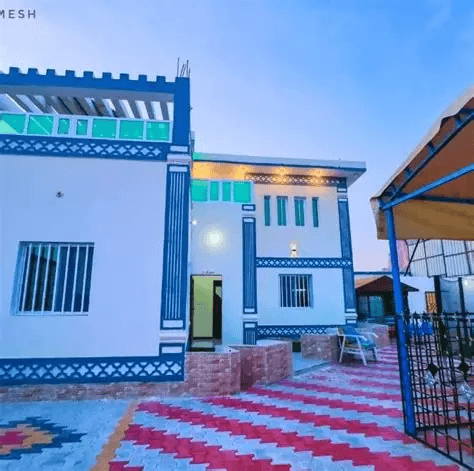
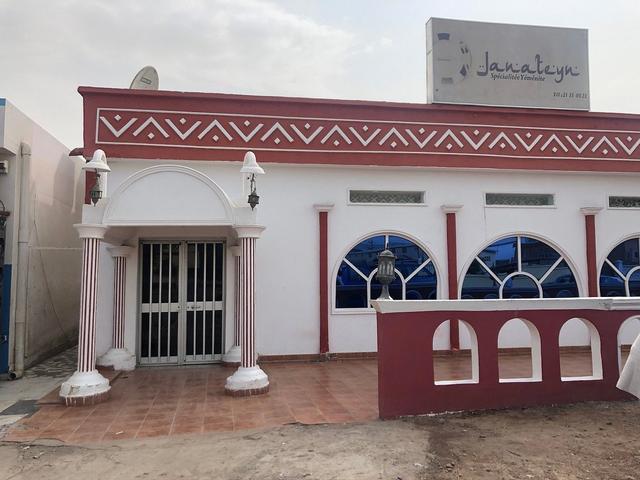
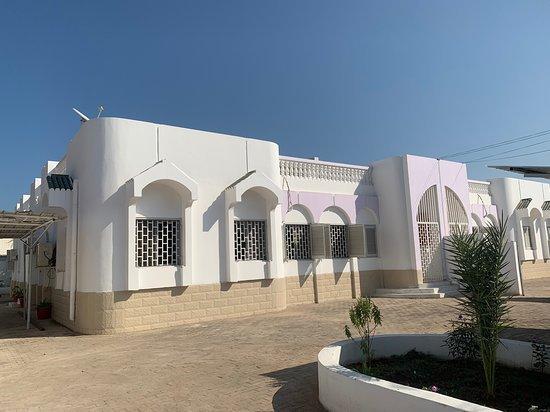
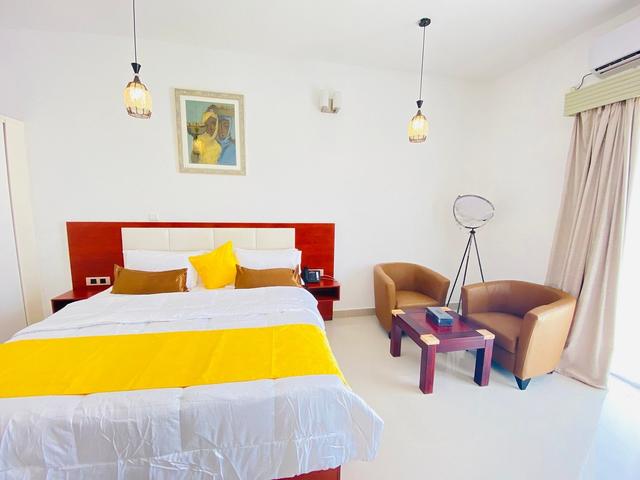
Hotels and Resorts
Djibouti has a well-developed hotel sector, particularly in the capital, Djibouti City. Luxury hotels such as the Djibouti Palace Kempinski and Sheraton Djibouti offer premium amenities, including fine dining, swimming pools, spas, and business centers, catering to diplomats, business travelers, and tourists. Mid-range hotels are also available and provide essential comforts like air conditioning, en-suite bathrooms, and Wi-Fi. In smaller towns, hotel options are more basic but still provide decent accommodations for travelers exploring the interior regions.
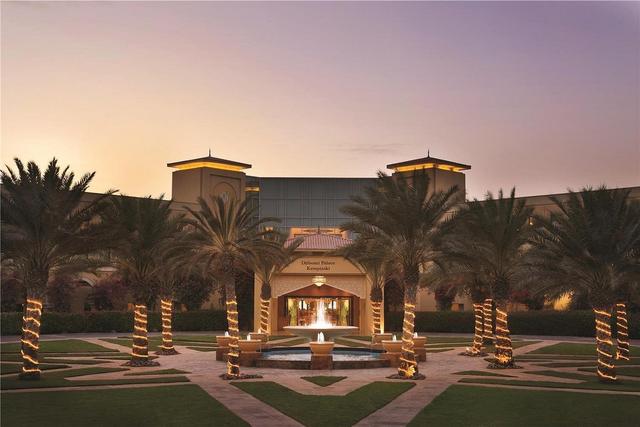
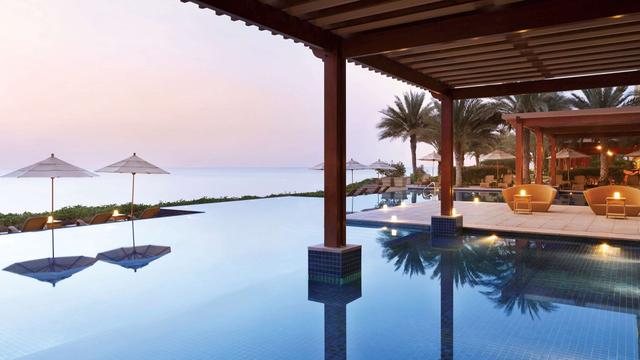
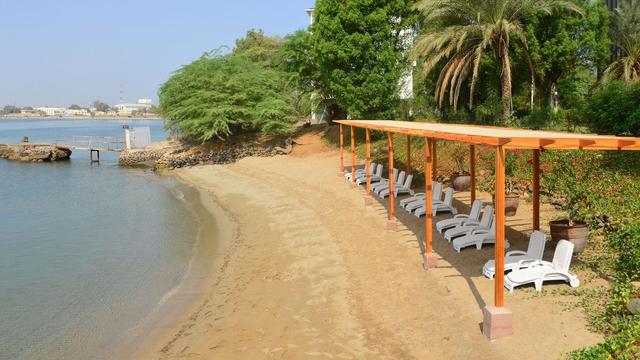
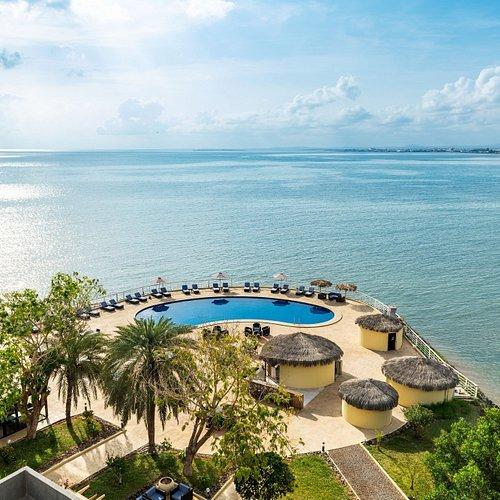
Raids
Traditional riads—Moroccan-style houses with central courtyards—are not typical in Djibouti’s architectural or hospitality scene. However, a few boutique-style accommodations incorporate traditional Afro-Arab and French colonial design elements, featuring shaded verandas, arches, and decorative tilework. These are mostly found in renovated buildings within the older parts of Djibouti City, offering a blend of charm and comfort for travelers seeking a unique lodging experience.
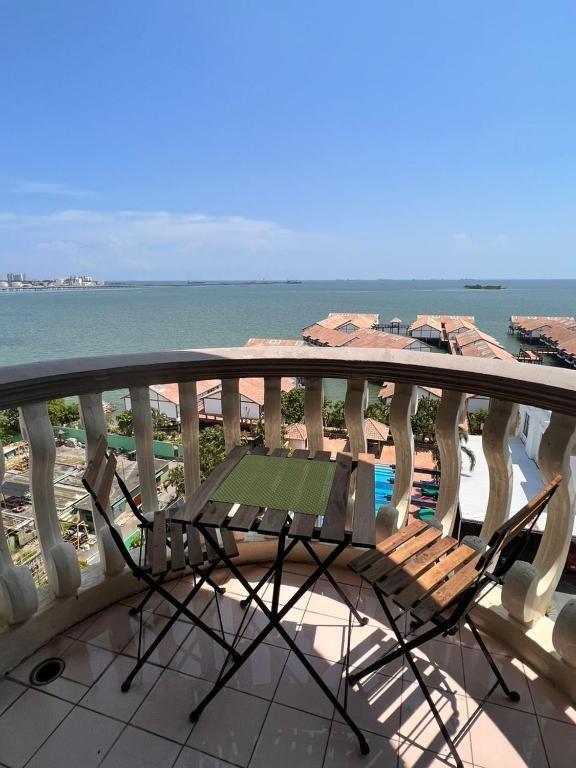
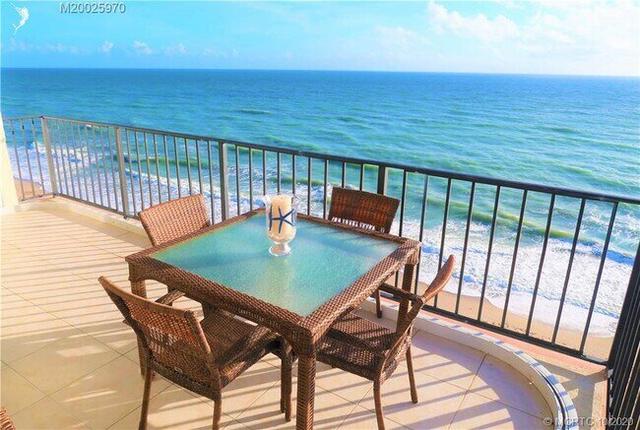
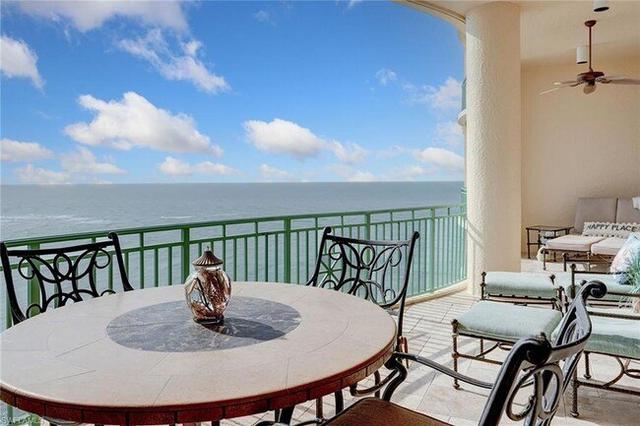
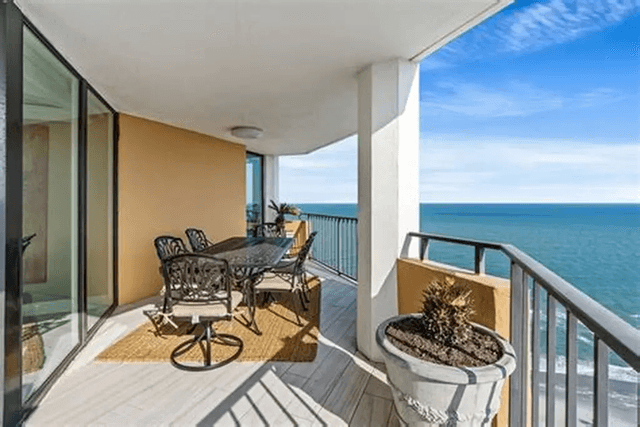
Campings
Camping in Djibouti is popular among adventure travelers and nature enthusiasts who wish to explore the country’s dramatic landscapes. Areas around Lake Abbe, Lake Assal, and the Goda Mountains offer stunning camping opportunities. While designated camping sites with full facilities are rare, guided tours often include organized camping with tents, meals, and basic amenities. The remote and sometimes harsh terrain makes it advisable to camp with a knowledgeable guide or as part of a tour group for safety and convenience.
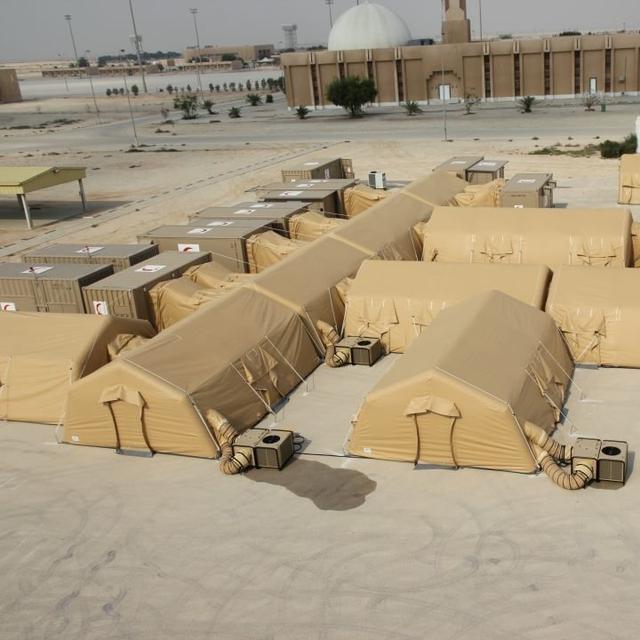
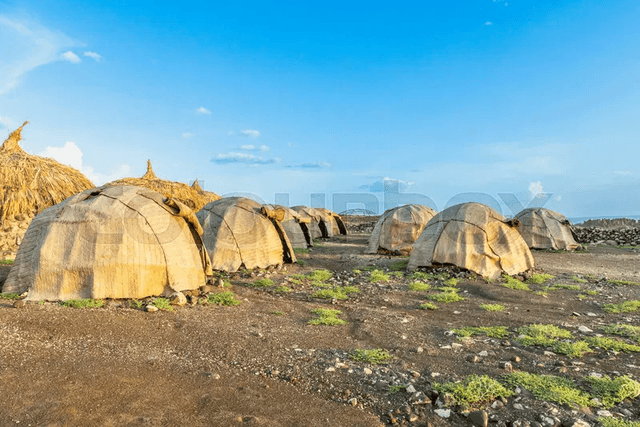
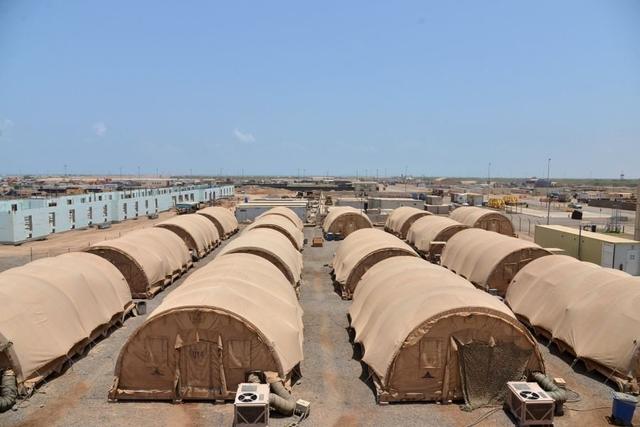
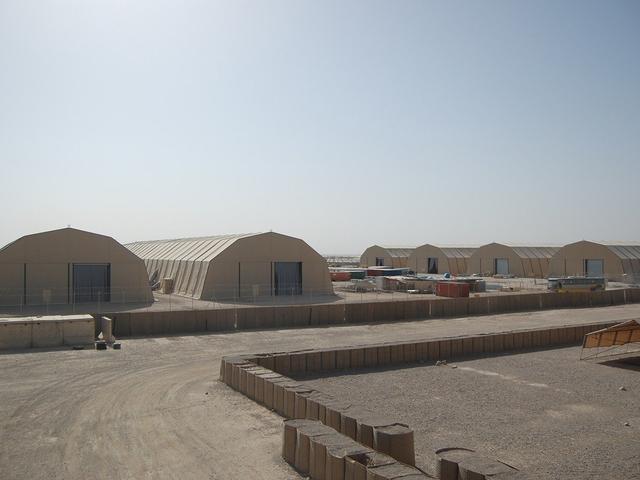
Requirement for visa
Documents needed when applying for a visa
To apply for a visa to Djibouti, applicants typically need to submit the following documents:
- Valid Passport: A passport with at least six months of validity beyond the intended date of arrival and at least two blank pages for entry/exit stamps.
- Visa Application Form: A completed visa application form, which can be obtained from the Djibouti embassy or consulate.
- Passport-sized Photograph: One recent passport-sized color photograph (JPEG or PNG), taken within the last six months, against a white or light-colored background.
- Flight Itinerary: A confirmed return or onward flight booking showing both entry into and exit from Djibouti.
- Accommodation Details: A valid hotel reservation covering the entire stay or, if staying with a host, a signed invitation letter from them, including their full name, contact details, your planned travel dates, and accommodation address.
- Proof of Financial Means: Recent bank statements, employment letter, or formal sponsorship letter demonstrating the ability to support oneself during the stay.
- Yellow Fever Vaccination Certificate: Required only if arriving from a country with risk of yellow fever transmission.
- Visa Fee: Payment of the visa application fee, which varies depending on the type and duration of the visa.
For the most accurate and up-to-date information, it's recommended to consult the nearest Djiboutian embassy or consulate, as requirements may vary based on nationality and the purpose of the visit.
Economy of Djibouti
Trading in Djibouti
Trading in Djibouti plays a vital role in the country’s economy due to its strategic location at the crossroads of major maritime routes connecting Africa, the Middle East, and Asia. The Port of Djibouti serves as a key transit hub for imports and exports, especially for neighboring landlocked Ethiopia, facilitating the movement of goods such as fuel, food products, machinery, and consumer goods. Djibouti’s free trade zones and modern logistics infrastructure attract regional and international businesses, boosting commerce and investment. Trade activities are supported by a network of markets and commercial centers in Djibouti City and other urban areas, where local and imported products are exchanged, reflecting the country’s role as a commercial gateway in the Horn of Africa.
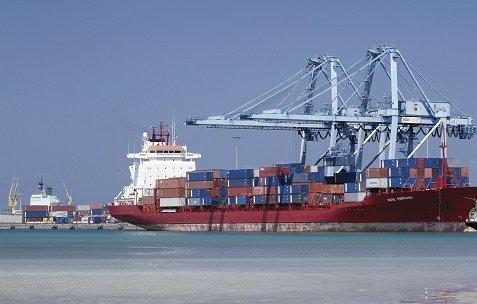
Finance
Djibouti’s banking sector has evolved significantly over the past two decades, growing from a limited system to a more dynamic and competitive industry with about 12 commercial banks, most of which are foreign-owned. The sector is regulated by the Central Bank of Djibouti, which maintains monetary stability through a currency board arrangement that pegs the Djibouti franc to the US dollar. Islamic banking has also become an important part of the financial landscape, serving around 20% of the market with Sharia-compliant products. Despite progress, challenges such as limited access to credit and infrastructure gaps remain, but ongoing reforms and a stable regulatory framework are helping to expand financial inclusion and attract international investment.
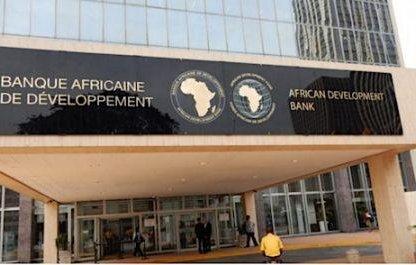
Tourism
Tourism in Djibouti is an emerging sector that capitalizes on the country’s unique natural landscapes and rich cultural heritage. Key attractions include the saline Lake Assal, the lowest point in Africa, the striking limestone formations at Lake Abbe, and the Day Forest National Park, which offers rare greenery and wildlife. Coastal areas like Khor Ambado Beach and Île Moucha are popular for snorkeling and diving, especially with whale sharks. Djibouti City features historical sites such as the Hamoudi Mosque, reflecting the nation's diverse culture. The government has taken steps to promote tourism by simplifying visa processes and reducing fees, aiming to attract more international visitors. Though still developing, Djibouti’s tourism sector offers adventurous travelers a distinctive and less-explored destination in the Horn of Africa.
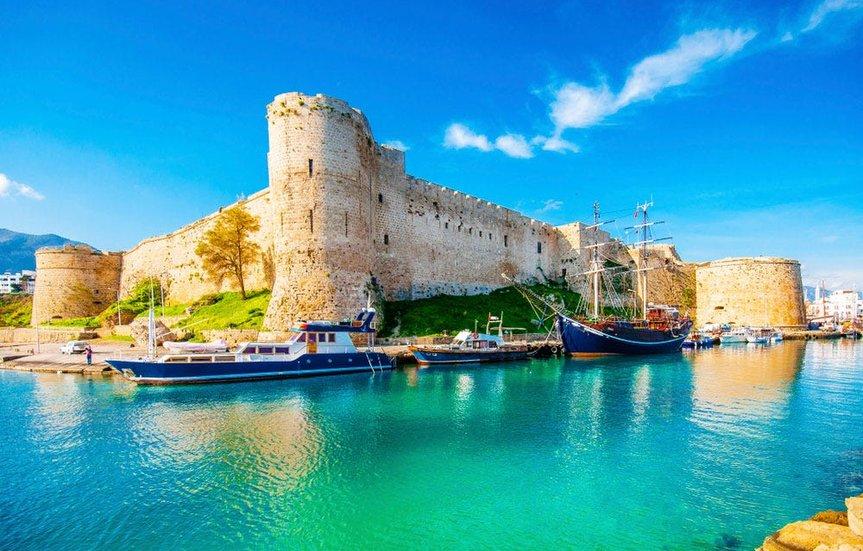
Djibouti has made impressive progress in infrastructural development, positioning itself as a strategic logistics and trade hub in the Horn of Africa. Major projects include the expansion of the Djibouti International Free Trade Zone, one of Africa’s largest, and the construction of the Ghoubet Wind Power Station, the country’s first large-scale renewable energy facility. Efforts to improve regional connectivity, especially along the Djibouti–Addis Ababa corridor, enhance trade with neighboring Ethiopia. Social infrastructure such as roads, housing, and public facilities has also expanded, creating thousands of jobs and benefiting local communities and refugees. Looking ahead, ambitious plans like the Al-Noor suspension bridge, which would link Djibouti to Yemen, aim to further boost economic integration between Africa and the Middle East. These developments highlight Djibouti’s commitment to sustainable growth by leveraging its strategic location and attracting international investment.
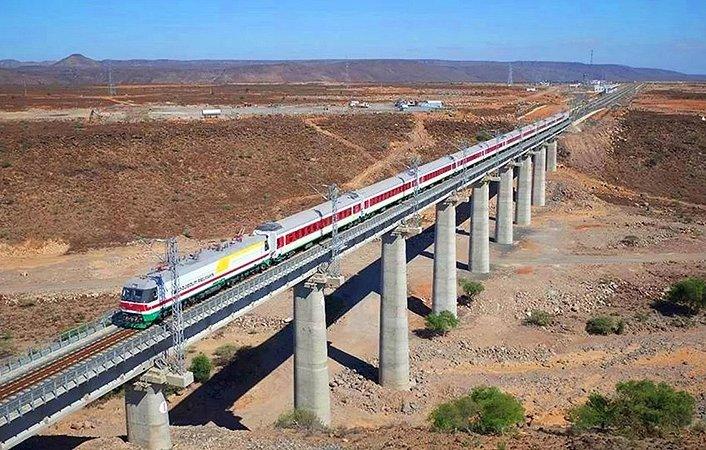
Transportation and Telecommunication
Transportation and telecommunication in Djibouti are crucial components supporting its role as a regional hub. The country has a well-developed port infrastructure in Djibouti City, serving as a gateway for landlocked neighbors like Ethiopia. Road networks connect major cities and border crossings, though rural areas often rely on less-developed routes. Djibouti also has a small but strategic international airport facilitating passenger and cargo traffic. In telecommunications, Djibouti has made significant progress with widespread mobile phone coverage and growing internet access, supported by several service providers and undersea fiber-optic cables landing on its coast. These advancements enhance connectivity for both businesses and residents, fostering economic growth and integration in the Horn of Africa.
